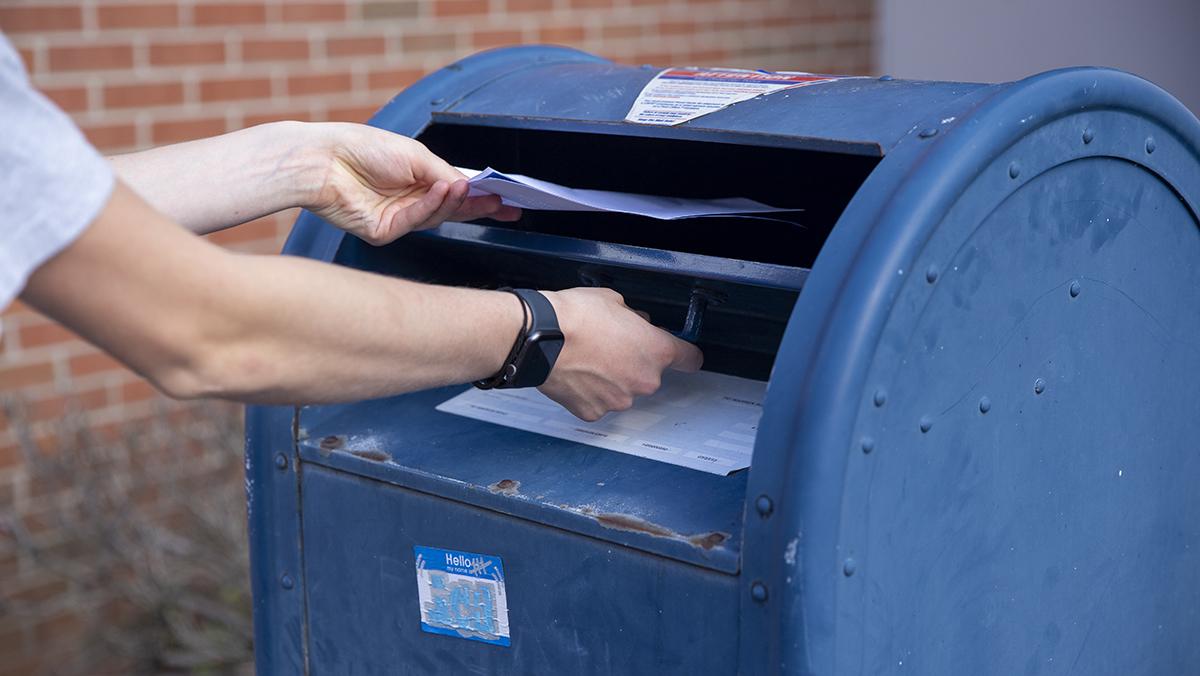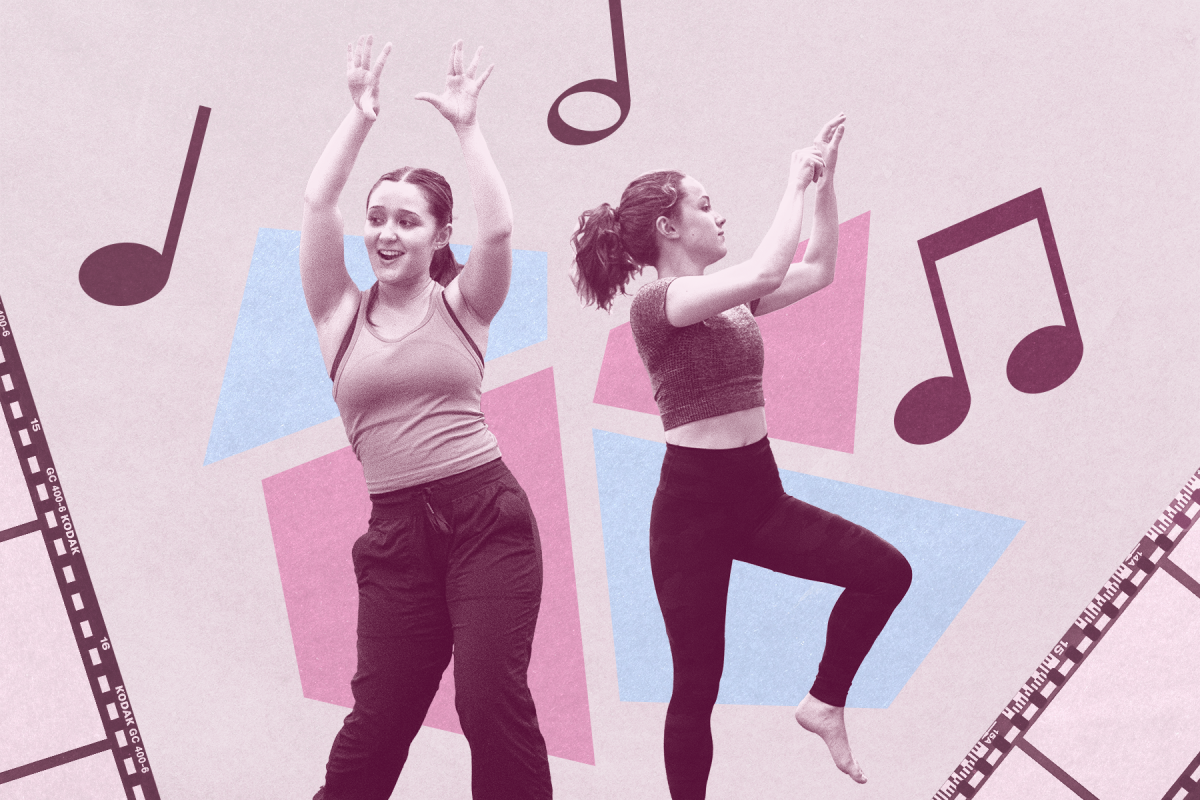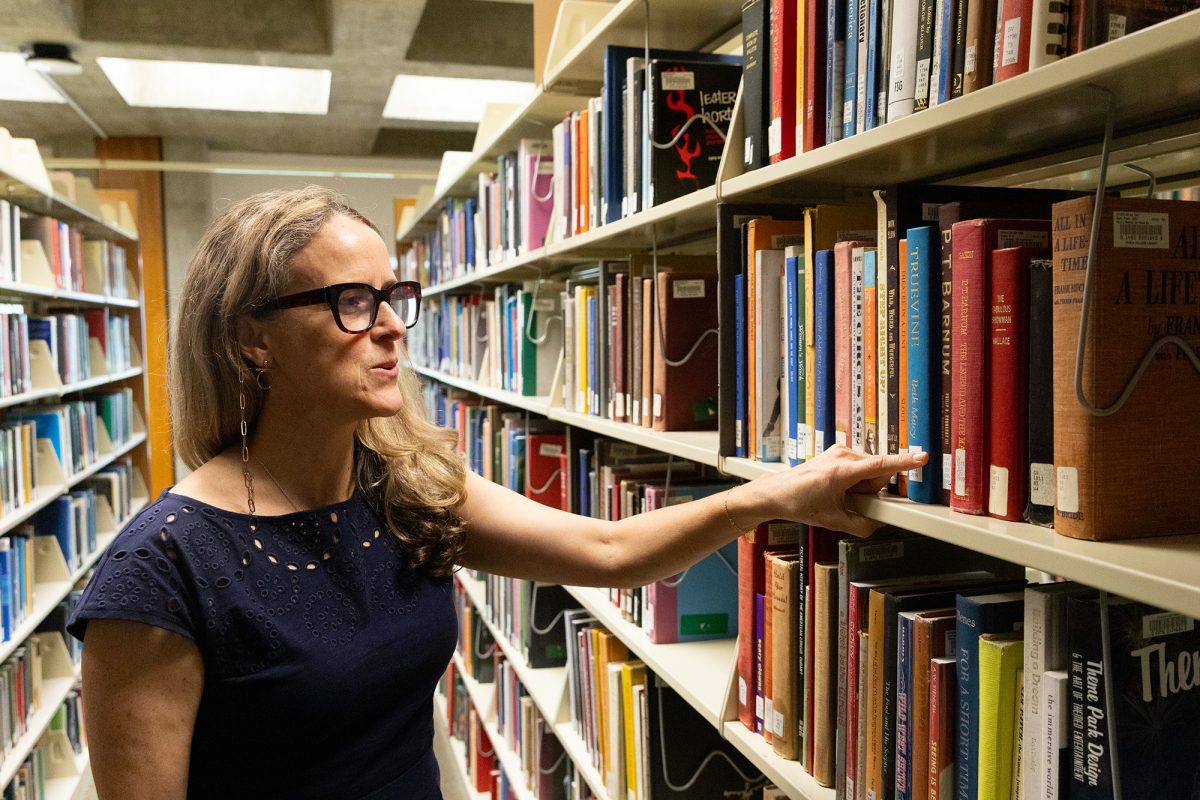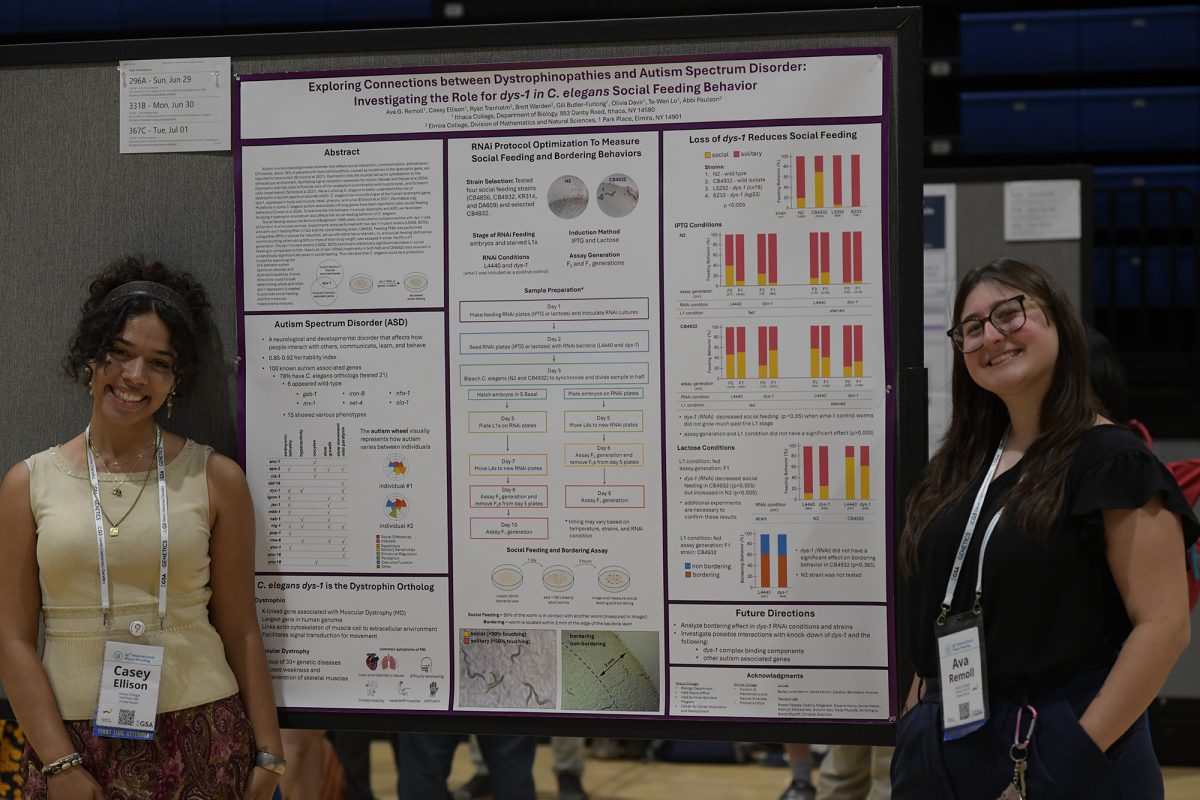Voting by mail-in ballot was challenged in New York state in a lawsuit by a group of Republicans, including District 6 Tompkins County legislator, Mike Sigler. However, the lawsuit was overturned Feb. 5 and absentee ballot voting was upheld by a New York state judge.
Gov. Kathy Hochul signed the “New York Early Mail Voter Act” on Sept. 20, 2023. In an interview with WXXI News, Hochul said the Act would make voting easier for working New Yorkers and those who cannot make it physically to the polls on time to obtain a mail-in ballot. The lawsuit challenging the bill cites that more than 55% of New York state voters in 2021 did not support an “Authorizing No-Excuse Absentee Ballot Voting” amendment to the state’s constitution.
According to the lawsuit, the “New York Early Mail Voter Act” is a violation of Article II, Section 2 of the state’s constitution, which requires qualified voters to vote at their designated polling place, except if they are absent from their county or are not physically able to vote in-person.
Senior Carli McConnell, president of the Student Governance Council and a Student Leadership Consultant, said that while the lawsuit represents a threat to democracy, it more so represents an accessibility issue.
“There are some people that can’t even leave their homes,” McConnell said. “Since living in Ithaca, it’s the only way to vote, especially for students who are not registered in Tompkins County; [a mail-in ballot is] essential if you want to vote. It’s also important for people who are disabled or as simple as someone having a vacation during election day. It’s undemocratic to not allow them — especially if it’s well in advance — a mail-in ballot.”
First-year Breanna Greenspun said her grandparents have mobility and health issues that make leaving the house harder for them. Although she’s from Connecticut, she said the “New York Early Mail Voter Act” seems helpful for older populations.
“My grandmother can’t leave the house, she just got surgery over the summer,” Greenspun said. “It would probably be very hard for her to vote, and she has a breathing machine, so I feel like it’s hard for people in those situations. My grandfather also has multiple sclerosis, so I feel like older people shouldn’t have to have an excuse [to get a mail-in ballot].”
McConnell said mail-in ballots are also necessary for recent college graduates who may be moving around the country because of new and different job opportunities. However, mail-in voting changes state-by-state. Some states like Idaho, Minnesota, New Jersey and New Mexico allow mail-in ballots for smaller jurisdictions whereas states like Nebraska and North Dakota allow their counties to opt into mail-in ballot voting, according to the National Conference of State legislatures.
“Post-grad for many of us is uncertain for many years,” McConnell said. “If you’re constantly going to be bouncing back and forth, city to city or traveling, knowing how to vote with a mail-in ballot — even if you’re just going to be in a place for a year, or if you don’t know where you’re going to be in a year — it’s really important to know how you can vote.”
According to the Pew Research Center, 10% of the U.S. electorate in 2022 was under the age of 30. In 2020, voters under 30 made up 14% of the nation’s electorate. McConnell said newly college graduates should vote because once they graduate college, their vote may impact the industry they choose to work in.
“Since we are the up-and-coming generation … to be in political seats and we’re entering the job force, it’s even important for local elections that might influence policies or who you elect might influence your own job,” McConnell said.
Cathy Michael, communications librarian and the liaison to the Department of Politics, which enhances communication and helps with technology issues throughout the department, created a voter guide for students, “Be Vote Ready.” The guide supplies students with information about how to register to vote, how students can check if they are already registered and when the deadlines are for voting in-person and by mail-in ballot for the states most students are from at the college.
She said the guide also has information about how to change parties — the date to do so was Feb. 14 — and how to change a permanent address. Michael said students can vote in local elections if they change their permanent address to Tompkins County. She said students can vote on issues that directly impact them like the TCAT, education, housing and homelessness if they feel their vote would carry more weight in Tompkins County than in their home county.
“Local elections matter,” Michael said. “Sometimes it is very close, so it does matter if you get out and get to vote. I want to encourage the campus to become politically and civically engaged.”
First-year student Maggie Armstrong said she is not sure how she will vote in the primaries and said she needs to find information about how to vote. Armstrong said she has not found any information on campus about voting, but would like to see more.
“I think it would be helpful if students came up to us and taught us about voting and mail-in ballots,” Armstrong said.
Michael said she is afraid of disengagement from voting and that college students will not understand that their vote can effect change and affect their daily lives.
“I’m frustrated with the system,” Michael said. “[Students] are not seeing how it affects their personal life. It does.”
Michael said she, along with some members of the Women League of Voters of New York, handed out pamphlets at a voting table event Feb. 14 to raise awareness about registering to vote in time for the 2024 presidential primary election. The New York primaries are April 2.
McConnell said she is from Pennsylvania and the “Be Vote Ready” site was helpful to her in determining the deadline to get her absentee ballot into her county. She said that engaging with college students about how to vote is necessary to break the stigma of not being smart enough to cast a ballot.
“As the semester goes on, we’re going to be focusing a lot more on how to and what it means to vote, how to vote … smartly,” McConnell said. “I know a lot of people … on this campus are politically engaged, but there are still people that say ‘I feel like I don’t know enough to actually have an opinion and cast a vote.’”
College student voters have hit a record turnout during the 2020 Presidential election, with 66% of students registered to vote casting their ballots and 40% in the 2018 midterm election, according to the Washington Post. Michael said she hopes more students learn how to register to vote and practice participating in politics.
“I think civic engagement is an important value and everyone should learn how to and register to vote,” Michael said. “Hopefully by the time everybody graduates, they have participated in some fashion in a political election or have a basic knowledge of how to vote.”


















Martin Toombs • Mar 2, 2024 at 2:58 pm
The law in question does not affect the rights of voters to vote absentee if they are away from home on election day, or for some health or physical reason are unable to get to the polls. That sort of absentee voting has always been legal and would have allowed college students living away from the place where they want to vote to vote. The law in question extends access to a mail-in ballot to anyone who wants one, even without an impediment to voting in person. I think that’s a good idea, but it doesn’t impact college students.